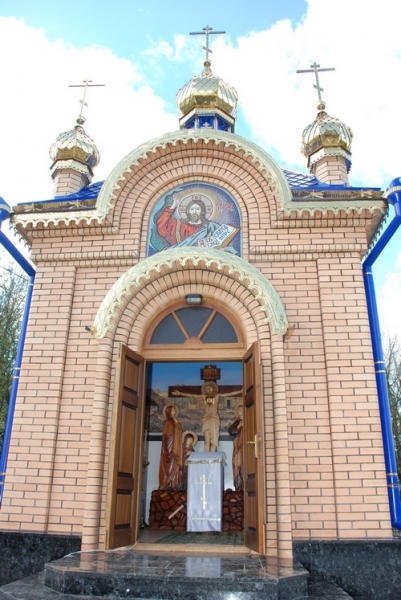1. Introduction: Exploring Divine Guidance and Chance Across Eras
Throughout human history, the concepts of divine guidance and chance have been intertwined, shaping societies’ understanding of fate, luck, and divine intervention. From ancient civilizations relying on celestial signs to modern interpretations in entertainment and gaming, these themes reflect our ongoing quest to find meaning in the unpredictable. Philosophers and historians have long debated whether luck is a sign of divine favor or merely randomness, yet both perspectives continue to influence cultures worldwide.
- Ancient Foundations: Temples, Rituals, and the Concept of Divine Will
- From Sacred Spaces to Symbolic Chance: The Evolution of Divine Guidance
- Modern Perspectives: Chance, Choice, and Divine Symbolism in Games and Media
- Depth and Nuance: Non-Obvious Connections and Cultural Variations
- The Intersection of Science, Faith, and Chance
- Conclusion
2. Ancient Foundations: Temples, Rituals, and the Concept of Divine Will
a. The role of Greek temples as spiritual and social centers
Greek temples served as focal points for religious worship, community gatherings, and oracular consultations. These sacred spaces were believed to be conduits for divine communication, where gods could influence mortal affairs. Temples like the Parthenon in Athens not only embodied religious reverence but also demonstrated the societal importance of divine authority in daily life.
b. Celestial alignments and their significance in temple architecture
Ancient builders often aligned their temples with celestial bodies or events. For example, the Heraion of Samos was oriented to capture the rising sun during solstices. Such alignments reinforced the belief that celestial movements were manifestations of divine will, guiding human activity and spiritual focus.
c. Rituals and sacrifices: seeking divine favor and guidance
Sacrificial offerings and elaborate rituals were performed to communicate with gods and solicit their guidance. The Oracle of Delphi, for instance, was central to Greek decision-making, where priests interpreted divine signs to advise leaders. These practices exemplified a worldview where chance and divine will were deeply interconnected.
d. How chance was perceived in ancient rituals and divination practices
Divination tools such as casting lots, reading auspicious omens, or interpreting dreams were common. The Greeks believed that certain outcomes were influenced by divine favor or fate, but chance also played a role—interpreted as messages from the gods. This blend of randomness and divine insight laid the groundwork for modern ideas of luck and guidance.
3. From Sacred Spaces to Symbolic Chance: The Evolution of Divine Guidance
a. Transition from literal divine intervention to symbolic interpretation
Over time, direct divine intervention became less tangible, giving way to symbolic systems like astrology or fate. For example, the Babylonians interpreted celestial events as divine messages, shaping decisions without physical sacrifices. This shift allowed humans to perceive guidance as embedded in natural phenomena, blending faith with observation.
b. The influence of astrology and celestial events on human decision-making
Astrology played a pivotal role across cultures, from Chinese astrology to Western horoscopes. Celestial alignments were believed to influence individual destiny and societal outcomes, reinforcing the idea that the universe’s movements reflect divine order. Such beliefs persisted into modern times, influencing decisions in politics, health, and personal life.
c. The concept of fate and free will in different cultures
While some cultures, like the Stoics, emphasized fate as predetermined, others, like the Greeks with their concept of *agon* (struggle), acknowledged human agency. In Asian traditions, such as Taoism, harmony with the natural flow was key, illustrating diverse views on divine influence and personal choice.
d. How ancient practices laid groundwork for understanding randomness and guidance
Practices like casting lots or interpreting omens introduced early notions of randomness as a means of divine communication. These methods acknowledged that chance could be a channel for divine will, a concept that resonates in today’s understanding of luck and probability.
4. Modern Perspectives: Chance, Choice, and Divine Symbolism in Games and Media
a. The rise of chance-based games as modern rituals
Today, games involving luck—such as lotteries, slot machines, and online slots—serve as contemporary rituals. These activities mirror ancient practices by creating shared experiences where chance is imbued with meaning, often linked to hopes for fortune or divine favor.
b. Case Study: can’t stop playing this bloody game as an example of divine guidance in gaming mechanics
Modern slot games like Gates of Olympus 1000 exemplify how divine themes are embedded in game design. The game’s mechanics—such as symbols of gods, divine rewards, and chance-based outcomes—serve as contemporary reflections of ancient beliefs where luck and divine favor are intertwined. These games tap into our innate fascination with divine guidance, offering entertainment that echoes historical rituals, yet through digital algorithms.
c. How game design reflects ancient themes of luck and divine influence
Game developers often incorporate mythological motifs and chance mechanics to evoke feelings of awe and mystery. For instance, the use of symbols representing gods or celestial events in slots creates a narrative of divine intervention, subtly drawing on millennia-old perceptions of luck as a form of divine communication.
d. The psychological and cultural significance of chance in entertainment
Chance-based entertainment provides a sense of unpredictability and hope, releasing dopamine and fostering community. It continues the ancient tradition of seeking guidance or favor through luck, now manifested in digital forms that captivate millions worldwide.
5. Depth and Nuance: Non-Obvious Connections and Cultural Variations
a. Comparing Greek divine guidance with other cultural perceptions of luck and fate (e.g., Norse, Asian traditions)
In Norse mythology, the Norns determined fate, similar to Greek Moirai, emphasizing divine influence over destiny. In contrast, many Asian traditions, such as Shinto, regard luck as intertwined with kami (spirits) that influence daily life. These variations highlight how different cultures perceive divine guidance—either as fixed fate or as a dynamic interaction with spiritual forces.
b. The role of randomness in religious and spiritual practices beyond ancient Greece
Practices such as drawing lots in Christianity or using I Ching in China exemplify how randomness is employed to access divine will. These methods often serve as tools for decision-making under uncertainty, reinforcing the idea that chance is a conduit for divine or spiritual insights.
c. How modern technology and gaming continue to mirror ancient beliefs about divine influence and chance
Algorithms in digital games and online lotteries simulate the randomness of ancient divination. They embody the modern equivalent of casting lots or reading celestial signs, emphasizing that the human desire to find divine or meaningful guidance in chance persists across ages.
6. The Intersection of Science, Faith, and Chance: Bridging Ancient and Modern Understandings
a. Scientific explanations of randomness and probability
Modern science describes randomness through probability theory and quantum mechanics, where outcomes are inherently unpredictable but statistically governed. These explanations contrast with ancient views but also reveal that chance, whether viewed as divine or scientific, remains fundamental to understanding the universe.
b. Philosophical debates: determinism vs. free will in divine guidance
Determinism argues that all events are preordained, aligning with some religious doctrines, while others advocate free will, emphasizing human agency. The ongoing debate reflects ancient tensions between divine predestination and individual choice, shaping our perceptions of luck and guidance.
c. The ongoing human quest to find meaning in chance—spanning temples to algorithms
Humans have continually sought patterns and purpose in randomness, whether through ritual, astrology, or data analysis. This universal pursuit underscores our deep need to connect chance with meaning, bridging spiritual beliefs and scientific inquiry.
7. Conclusion: The Enduring Legacy of Divine Guidance and Chance in Human Culture
From the sacred temples of ancient Greece to the digital realms of modern gaming, the themes of divine guidance and luck persist as central elements of human experience. Ancient practices laid the foundation for contemporary perceptions, where chance can be seen as both a random occurrence and a whisper of divine influence.
“Our fascination with luck and divine guidance reveals a timeless desire to find order and meaning in chaos.”
Understanding this evolution enriches our perspective on how humans interpret the unknown. Whether through rituals at ancient temples or engaging with a game like can’t stop playing this bloody game, the core theme remains: the pursuit to comprehend and perhaps influence the mysterious dance of chance and divine will continues to define us.















